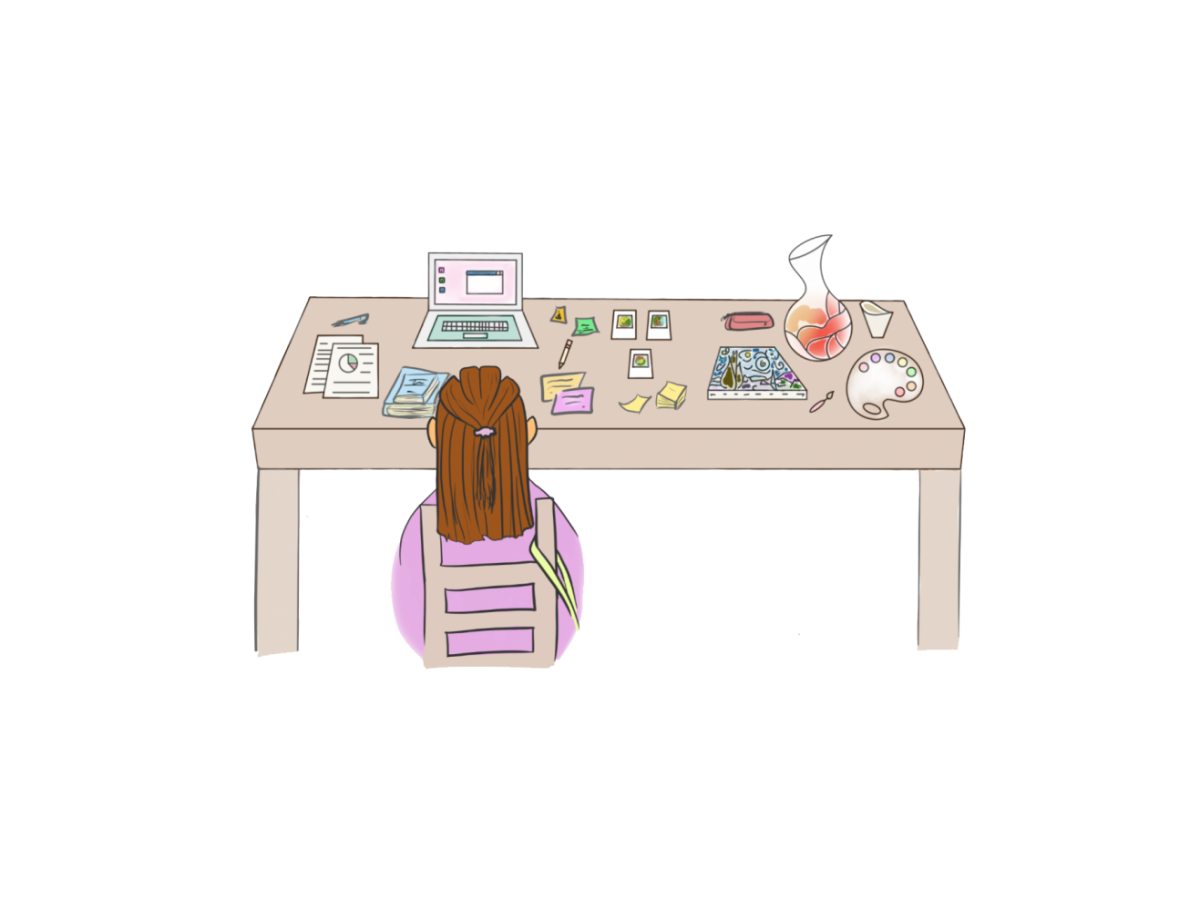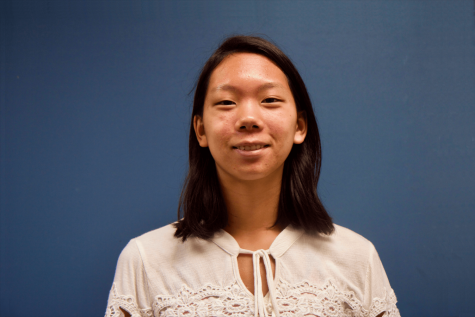Five new classes introduced at Lynbrook
September 28, 2017
As students entered Lynbrook for the new school year, many held schedules that included new classes such as photography, AP Studio Art, ceramics, Accounting 2 and AP Computer Science Principles. These newly introduced courses provide students with the opportunity to delve deeper into a variety of fields, ranging from art to business.
As a result of a desire to diversify course offerings at Lynbrook, the administration asked the guidance department and department leads about new classes they might wish to develop. Students were then surveyed to gauge interest in the proposed classes, and certain classes with high interest levels became actual course offerings.
“The administration wants to always try to be diverse with our course offerings and to look across the district so that our students are having the same kinds of opportunities that other students have at other schools, like Cupertino or Monta Vista, where they might have certain courses that we do not offer here,” said Assistant Principal David Erwin, who is responsible for course registration and selection. “We would like to see if we would be able to potentially offer those for our students.”
Led by art teacher Matthew Reynolds, photography students learn about the basics of taking photographs with Digital Single Lens Reflex (DSLR) cameras, which have the capability to take much higher quality photographs than regular point-and-shoot cameras. The class will cover various aspects of taking a good photograph, including composition, lighting, perspective and subject matter. Each photography student received one camera for use both in and outside of the class, and students are instructed on the use of Adobe Lightroom and Photoshop as editing software.
AP Studio Art, also taught by Reynolds, guides students through the process of creating a 24-piece art portfolio for submission to the AP exam and colleges. AP Studio Art is more intensive than the regular Studio Art class, in which students usually create six to eight pieces instead of 24. Of those 24 pieces 12 are breadth, meant to demonstrate a student’s range with different styles, media and subject matter, while the other 12 are concentration and allow the student to develop a theme and explore it through artwork. Compared to other art classes at Lynbrook, AP Studio Art gives students more freedom in terms of independent work and creating pieces of their own conception, which has helped them grow personally.
“I used to think that I would apply for a STEM major, but now, because I am currently working on a portfolio, I decided to do design,” said AP Studio Art student senior Margaret Lu. “However, my STEM background continues to benefit me when I am working on projects because my portfolio will always be different from someone else’s even if the prompts are the same.”
In ceramics, art department lead Charlotte Kruk instructs students on working with clay, from hand-building to glazing techniques. Students are given the opportunity to use a potter’s wheel and practice pinch pot methods of creating pottery by hand. One of the projects Kruk hopes to have her ceramics students pursue this year is the creation of more tile murals for classrooms around the school.
In the business department, the new Accounting 2 class involves a more advanced study of accounting than the introductory accounting class. Unlike Accounting 1, which covers accounting for simpler business models such as sole proprietorships, Accounting 2 encompasses accounting for more complicated business scenarios, such as those in departmental accounting. Since only nine students are currently enrolled in the Accounting 2 class, it is held in the same class period as Accounting 1. While the Accounting 1 students are given lectures from business department chair Andrea Badger, the Accounting 2 students watch videos made by her.
Although Lynbrook has been offering the AP Computer Science A course for several years, AP Computer Science Principles was just introduced as a class this year. Unlike AP Computer Science A, AP Computer Science Principles, taught by math and computer science teacher Brad Fulk, is designed to be an introductory college computing course that appeals to students who might otherwise not take a computer science course. No prior programming experience is necessary, with a central focus of the course being project development, such as creating mobile applications.
“AP Computer Science Principles focuses on teaching mobile app development, which is really relevant because so much of what we are doing [today] is through mobile apps,” said Fulk. “It is kind of cool to find a course that focuses on something that relevant because most of the time, we, as teachers, try to find how to connect the course material to what students are doing, and that is really apparent in this class.”
With changes come adaptations, and this year, that included preparing for the new classes by introducing a new Mac lab, in room 605, with 36 Mac desktops. The Mac lab is used by AP Computer Science classes, photography and Econ & Virtual Enterprise, which was already a course at Lynbrook prior to this year. The main goals of the new Mac lab were to provide AP Computer Science Principles students with a more diverse skillset, such as knowledge of Swift, a programming language for Apple operating systems, and to allow photography students to use high resolution computers to edit their photographs. Funding for the new Mac lab and photography cameras was provided by Lynbrook Excellence in Education (LEXE).
Since the new elective classes are taken by students coming from a wide variety of backgrounds and experience levels, teachers have had to strike a balance to meet all of their students’ needs. With one class split between two different levels of accounting, Badger makes herself available to all students for questions. Although ceramics students come into the class with varied skillsets, Kruk makes sure to help all of them by getting to know them and their work closely.
The new classes not only allow students to explore more aspects of their personal interests, but also provide teachers the opportunity to pass on knowledge to their students about subjects they are passionate about. For instance, Accounting 2 has allowed Badger, a former Certified Public Accountant, to share deeper knowledge about a subject that she loves, and photography has always been an activity that Reynolds greatly enjoys. Similarly, Fulk enjoys keeping up with ever-changing technology while teaching AP Computer Science Principles, and ceramics gives Kruk the chance to dive deeper into the medium of clay.
“I have had to quiet my ceramic voice in the past,” said Kruk. “I have always had more ceramics projects in mind than I could possibly fit in the year, so I have had to kind of squash my own creativity around ceramics. Ceramics gives me the opportunity to reach mastery with students in a material, whereas in a level one class, we would really struggle to do that because we are changing the media so often.”
As the year progresses, these five new classes will no longer be unfamiliar to the campus, slowly becoming part of the Lynbrook culture. For this year and many more to come, students will find themselves challenged and captivated by the unique curricula that these courses offer.



































































